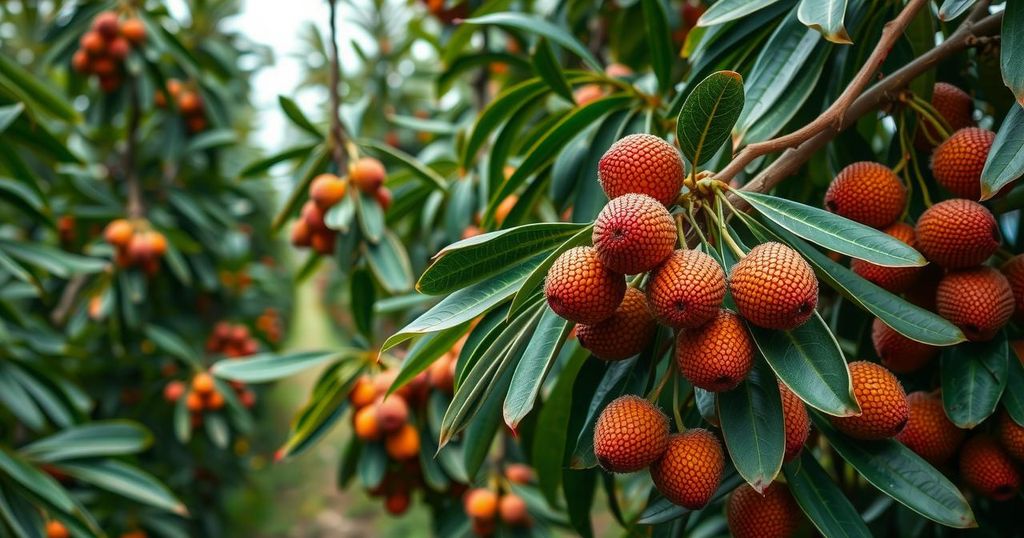Madagascar’s lychee harvest season has commenced, but producers are facing a crisis with a significant forecasted decline in yields. Factors such as unusually high rainfall and inadequate temperature shifts have disrupted growth. Agricultural experts are exploring solutions including sourcing lychees from remote areas and extending the harvest period; however, challenges remain in adapting to these climatic changes.
The lychee harvest season in Madagascar, recognized as the leading exporter of this highly coveted fruit, is currently beset by significant challenges due to a forecasted sharp decline in production. The harvest commenced last Tuesday, with refrigerated vessels dispatched to Madagascar’s eastern coast to collect the lychees, which are primarily exported to the European market during the critical end-of-year sales period. However, tension pervades the port city of Tamatave as industry leaders confront the realities of a potential yield reduction attributed to exceptionally early fruit ripening, a situation likely to have dire economic implications. Judith Riccati, deputy executive director of the Tamatave Horticultural Technical Centre, emphasized that various factors contribute to this predicament. “Exceptionally high rainfall in the first three months of the year – approximately 2,500 millimeters – has significantly disrupted plant growth,” she stated. The excessive rainfall has resulted in premature flowering of lychee trees, with many blossoms dislodged by the relentless downpours. Furthermore, lychee trees typically require a distinct temperature drop to approximately 15-16°C to induce necessary climatic changes that stabilize growth. This year, achieving such temperature drops has been problematic, compounded by the aging trees’ diminished responsiveness to climatic variations. In an effort to address the looming shortfall, agricultural experts are exploring potential solutions. Riccati remarked, “We could reduce the export quota, but at this point, that is no longer a viable solution given the orders and logistical arrangements already in place.” An alternative strategy involves extending the harvest duration by sourcing from more remote areas to fulfill export commitments, albeit this would necessitate longer loading times for the ships, currently limited to two and a half days due to financial constraints. Despite discussions regarding extended loading times for over two decades, implementation remains elusive. The prevailing unpredictable weather patterns underscore the pressing need for sustainable agricultural solutions in Madagascar.
Madagascar is the world’s leading producer of lychees, supplying a large portion of this fruit to European markets during the peak season at the year’s end. The island’s unique climate conditions play a crucial role in the growth and harvest of lychees; however, recent weather anomalies, particularly excessive rainfall and temperature fluctuations, have thrown production into disarray. Industry experts are now grappling with the consequences of these climatic shifts, which threaten both harvest yields and the economic stability of local growers, emphasizing the need for immediate and sustainable agricultural adaptations.
In summary, Madagascar’s lychee growers face an unprecedented crisis during the current harvest season, with forecasts indicating a considerable drop in production due to adverse weather conditions. With early fruit ripening and inadequate climatic shifts affecting tree growth, industry leaders are caught between managing export commitments and adapting to the changing agricultural landscape. Thus, the urgency for innovative and substantial agricultural practices to ensure economic viability in the face of climate unpredictability is paramount.
Original Source: www.rfi.fr






